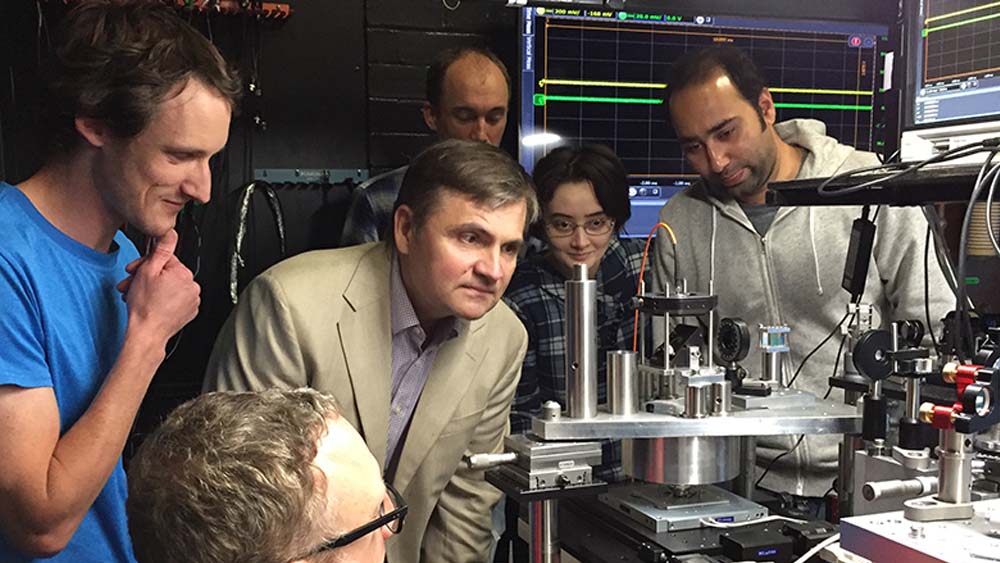
Dr. Vladislav Yakovlev, professor in the Department of Biomedical Engineering at Texas A&M University, is on the verge of breakthrough results in changing how researchers and clinicians image cells.
Yakovlev’s current research focuses on advancing techniques and methods for noninvasive optical imaging. His more recent work uses quantum imaging in biological systems to achieve a spatial resolution or sensitivity of detection beyond what is possible in classical optics.
Quantum properties of light are being considered for the next generation of computers and communication. However, with a growing number of quantum applications, quantum imaging hasn’t been seriously considered in many biological applications. Yakovlev is demonstrating that quantum imaging could overcome the limitations of current technology.
“This is a total breakthrough,” he said. “Quantum light allows you to do imaging with less light, or to use the same amount of light, to substantially improve the signal-to-noise ratio.”
Yakovlev’s team measures local viscoelastic properties of cells and subcellular structures in their lab. Using microscopy techniques Yakovlev developed over the past years, the team demonstrates how they can use quantum imaging to measure mechanical properties of cells and tissues, in this case, cancer cells, without perturbing those cells to allow imaging over an extended period to watch cell development and migration.
In another application, fluorescence lifetime imaging is being used to assess the metabolic rate and the differences in metabolic activities of the cancer cells. Knowing these factors can help direct treatment options. However, even with the state-of-the-art instrumentation, it is barely feasible to gain this information without affecting cells.
“If you shine too much light on those cancer cells, they don't behave properly,” Yakovlev said. “To get more information, you need to send more light. You send more light, you ultimately damage cells. We will be using this newly developed technique using quantum light to remove this limitation.”
Yakovlev said his research comes at the right time as the Department of Energy recently announced a new program to explore quantum effects for imaging plants. While his project is still in the beginning stages, Yakovlev said he is excited to see the work unfold.
“We’re coming into this at the right time and the right place,” Yakovlev said. “It’s amazing. That opens up so many possibilities that are yet to be explored.”